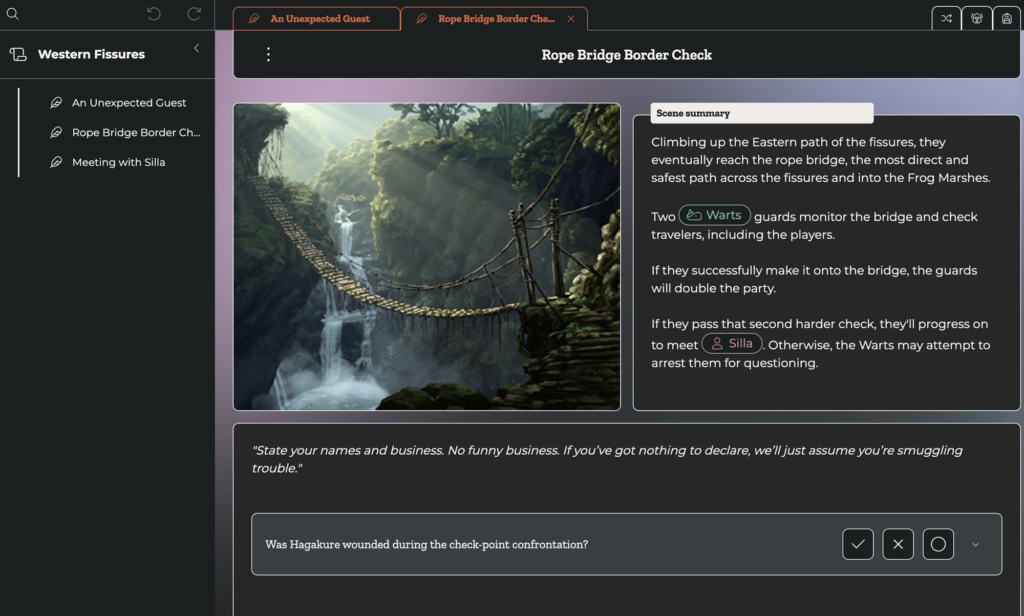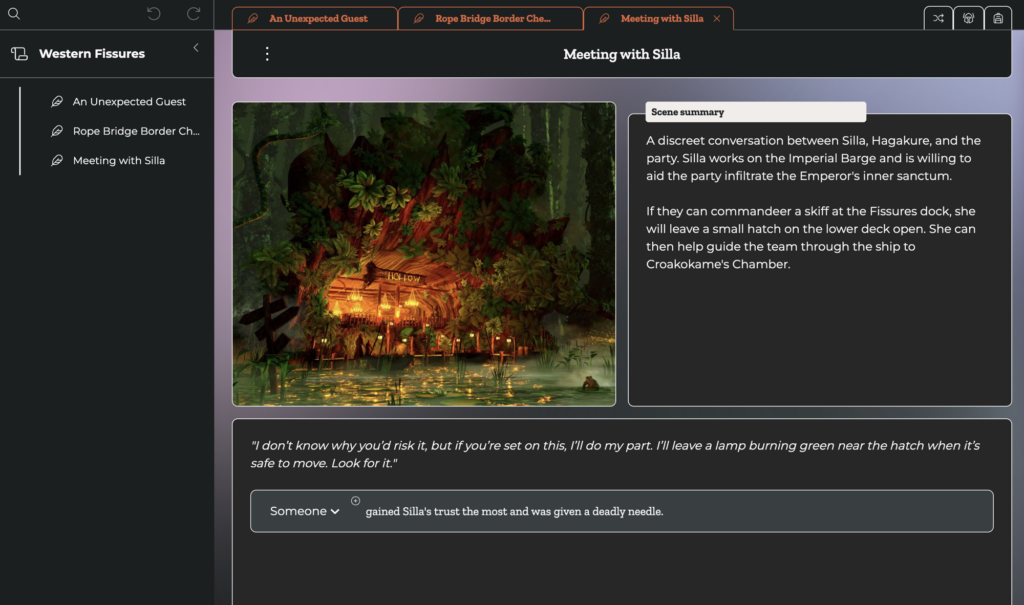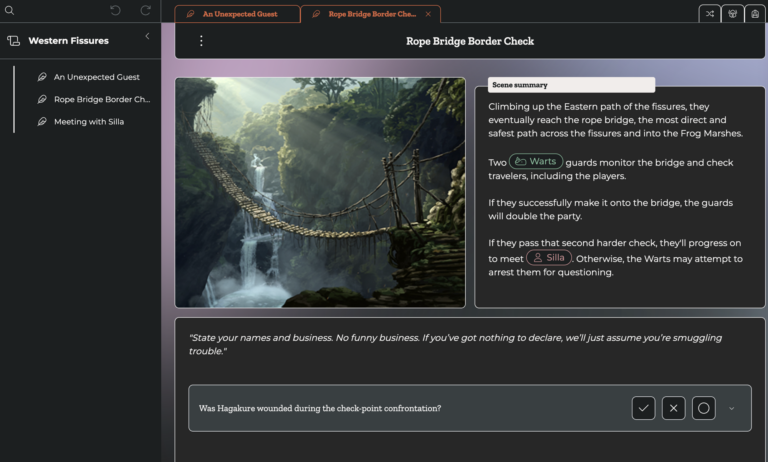I am constantly refining and experimenting how I prepare and run my games. My time is limited and if I can find a way to simplify or at least ease things like prep or note taking, I’m all game to try.
The latest experiment is into a new software called Amsel Suite. I don’t want to go into a deep dive into what the software is. You have Google. Rather though I wanted to highlight the feature that drew my attention in the first place: Plots.
In a nutshell, a plot takes two forms. The first is like a crossroad. A yes/no/other question. The second is based around a role or connection to a specific person.
These have been fascinating to explore because their main purpose is to connect past scenes to future events and to make them matter.
Crossroad Plots
Imagine you’re running a session, and the whole goal is to acquire a magical sword. This sword is the key to defeating the great villain and so it’s pretty important. But in the course of the session, there is a risk that the players might not acquire the sword. Maybe a rival group wants it. Maybe it is lost in the erupting volcano as they escape. Maybe they can’t get past the dragon guarding it. How would that impact future sessions?

A crossroad plot is making note of those moments. Big or small. Looking at a scene or encounter and asking “how is this going to impact what happens next?”.
In big moments, like the sword example, that crossroad is going to play out at a larger scale over the entire direction of the arc. The sword is lost to the rival group? Well, now the next session is a heist from the rival’s fortress. They lost it in the volcano? Now, we’ve got to change tactics or risk going on without it. But in small moments, it may play out in just a few scenes or two.
I just ran the opening of Hagakure’s Revenge in Crown and Skull, and a little crossroad was “Did Hagakure get wounded during the encounter with the Warts?” As we played the scene, I marked “YES”, and now in future scenes, the party is going to have to deal with the consequences of that event. A small crossroad that if I didn’t jot down, may have gone completely overlooked.
Role-based Plots
The Role-based Plot, on the other hand, focuses more on making connections and keeping track of who does what. Who lost the sword in the volcano? Who stood up for Hagakure and gained his trust Who rescued the princess and gained her favor?
Now that I have a note about who that moment is directly connected to, I can think about the role that connection plays and how it might come up in the future. For the player that lost the sword, they may lose the trust of the general who was relying on them to bring it back. The player who stood up for Hagakure, they may be trusted with additional details or a special mission. If the player has gained the princess’s favor, she may influence the king later on when the players speak at the high court.

It was fun to think about “who might do this thing” or “who is going to be involved with this”, and then see how things play out. I’m seeing it build these deeper connections to the events and the players experiencing them.
Why It Matters?
I’ve only just started this approach and using Amsel Suite. I’m not going to say this is some holy grail of session prepping and will change everyone’s game forever. No. But what I have really enjoyed about this focus on connecting plots and events is that in every scene I can think about “why this scene matters”? How does it contribute to the story we’re telling together?
I don’t want my session or arc to be a string of “and then this happened, and then this happened, and then this, and this…”. I want it to be a tale of “Well this happened, but because we did this, this happened, which led us to this, and that becomes this, and way back at the beginning because so and so did that one thing, it turned into this whole affair…”
It’s dynamic and growing, based on the players and how it happened at the table. Nothing that I could have foreseen or planned for. And taking note of those moments makes it easier for me to return back to them and make them matter.
